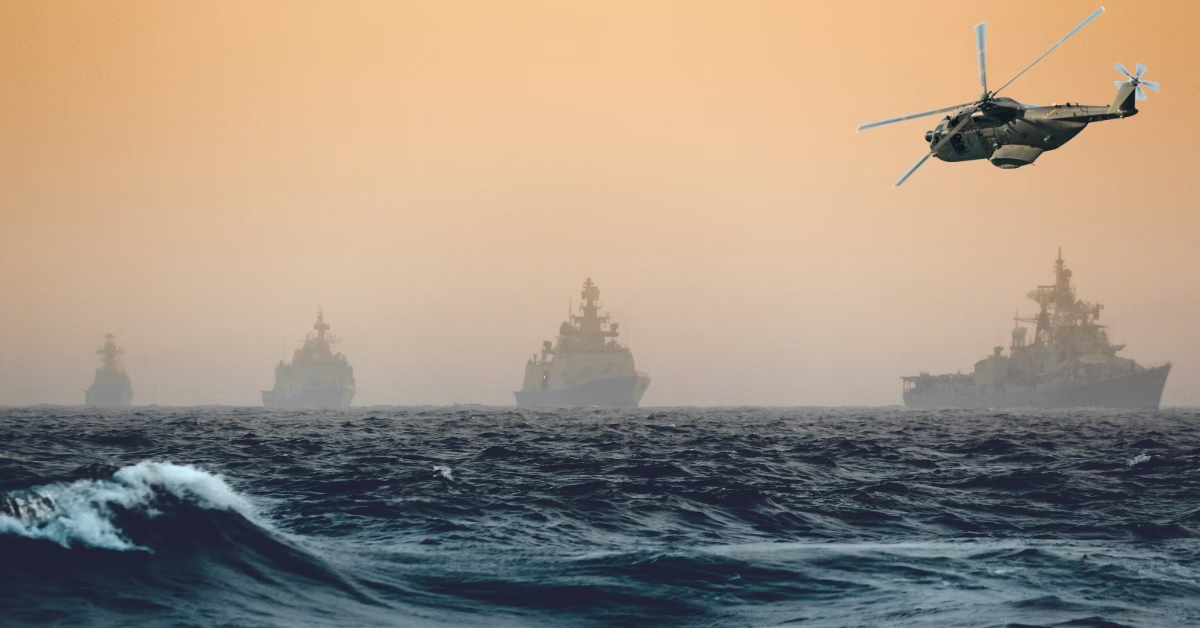WASHINGTON – U.S. Central Command has firmly refuted Iranian state media claims that the USS Fitzgerald was warned off and forced to retreat in the Gulf of Oman on Wednesday, dismissing the reports as blatant misinformation designed for domestic propaganda. A U.S. defense official confirmed that the guided-missile destroyer USS Fitzgeraldhad a “safe and professional” interaction with an Iranian helicopter that had no impact on its mission, which was conducted entirely within international waters.
The Pentagon pushed back hard against the Iranian narrative, which appeared calculated to project strength following a period of heightened regional conflict. The U.S. official labeled the claims “falsehoods and attempts by Iran’s Islamic Revolutionary Guard Corps (IRGC) to spread misinformation,” reaffirming the U.S. Navy’s commitment to operating lawfully on the high seas.
The U.S. Account: Lawful Operations in International Waters
According to the official U.S. account, the USS Fitzgerald (DDG-62), which deployed from its homeport in San Diego in June, was conducting routine and lawful operations in the vicinity of the Gulf of Oman on Wednesday morning. At approximately 10:50 a.m. local time, the destroyer interacted with an Iranian SH-3 Sea King helicopter. The U.S. defense official unequivocally denied the core allegations of the Iranian report, stating that the
USS Fitzgerald never entered Iranian territorial waters and that its crew did not threaten to engage the aircraft.
“This interaction had no impact to USS Fitzgerald’s mission,” the official stated, emphasizing that “U.S. Central Command will continue to operate safely and professionally in accordance with internationally recognized norms and customs.” The presence of the
USS Fitzgerald in the region is part of a broader U.S. commitment to ensuring freedom of navigation and deterring aggression in one of the world’s most critical maritime chokepoints.
ALSO READ : Mental Health and Wellness Services , San Francisco
Deconstructing Tehran’s Propaganda
In stark contrast, Iranian state-run media outlets broadcast a dramatized version of the encounter, complete with video taken from the helicopter’s cockpit. Tehran claimed its helicopter intercepted the
USS Fitzgerald as it “attempted to approach waters under Iran’s monitoring, in a provocative move.” The reports alleged that after a tense exchange where the U.S. crew supposedly threatened the helicopter, Iranian air defense units intervened, forcing the American destroyer to “give in” and retreat southward.
This narrative, centered on the supposed retreat of the USS Fitzgerald, fits a familiar pattern of Iranian harassment and propaganda at sea. Naval experts note that Tehran frequently uses its forces—particularly small, fast-attack craft and aircraft—to harass U.S. warships, test American rules of engagement, and create propaganda victories for domestic consumption. These carefully edited clips are designed to portray the Iranian military as a vigilant and powerful force capable of standing up to the U.S. Navy.
Expert Analysis: A Risky “Saving Face” Maneuver
The timing of this incident is critical, coming just a month after U.S. strikes targeted Iranian nuclear facilities during a wider 12-day conflict between Iran and Israel. Analysts suggest the confrontation was likely a “saving face” action by Tehran, designed to project strength and defiance after suffering a significant blow to its strategic programs.
“The Iranians are obviously, I think, willing to risk a little more — a little more tension in this moment in order to get sort of a propaganda victory,” said Afshon Ostovar, an associate professor at the Naval Postgraduate School and author of “War of Ambition.”
However, Ostovar stressed the military reality of the situation, noting that such actions are far more dangerous for the instigator. “That Iranian helicopter was far more in danger than USS Fitzgerald was,” he said. While this encounter ended without escalation, Iran’s willingness to engage in such risky behavior in the crowded and contested waters of the Gulf of Oman heightens the potential for a dangerous miscalculation that could spiral into open conflict.
The U.S. Navy remains committed to upholding international law and ensuring freedom of navigation. This incident, involving the USS Fitzgerald, serves as another reminder of Iran’s role as a destabilizing force, willing to use misinformation and provocation to challenge the international order and threaten the security of vital global commerce routes.

